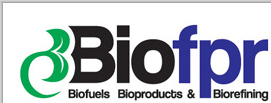Already registered? LOGIN.
-
FEATURE:
Cellulose adapts to new roles -
FEATURE:
Compost provides food for thought -
FEATURE:
Sending algae down the mine -
FEATURE:
Let’s find a new route -
FEATURE:
UBC Master of Engineering Leadership in Green...
Webinars Page
Welcome to the Biofpr Webinar page where you can register to upcoming webinars, as well as listen to previous ones wherever, and whenever you like. Listen first hand to the experiences of experts in the biofuels industry.
All now available for free!
Simply click on the Webinar below to attend:
C&I - The Outlook for Chemical Demand in a World of Ageing Populations
With the ever increasing change in the global economic demographics it is time to consider just what impact this has beyond the already accepted increase in healthcare costs.
Older people buy less, because they already own most of what they need, and they have less cash as they enter retirement. They will typically do ‘the trip of a lifetime’ as they pay off the mortgage, but after this will tend to prefer seeing the grandchildren than rushing out to the shopping malls as they did when the kids were younger. So growth will be very much slower, which has a big impact on chemical demand.
Automating the GC Analysis of Biodiesel - from Sample Prep to Reporting
This presentation will focus on the improving productivity and performance for the gas chromatographic analysis of biodiesel. Discussion will include the automation of complex sample preparation using the Agilent WorkBench, turnkey GC solutions implementing standard ASTM and CEN GC methods, and the new OpenLab software to customize data analysis and reporting of results for biodiesel processes and QA/QC.
This webinar is presented for chemists and laboratory managers concerned with the gas chromatographic analysis of biodiesel, specifically ASTM method D6584 and CEN method EN14105 for the determination of free and total glycerin along with EN14103 for the measurement of FAMEs. The overall goal is to introduce new approaches and techniques to improve precision and productivity while reducing the costs of biodiesel analysis. Discussions cover every aspect of these methods from sample preparation and calibration to data reduction and customized reporting.
Measure Biofuel Parameters - When And Where You Need To
The increased growth in the use of biofuels and associated regulations has presented the industry with a unique set of challenges. The breadth of source materials requires careful control of the quality of the end product. And then once produced, use is made of existing processing capabilities and pipelines raising concerns around cross contamination.
This webinar focuses on Mobile analysis solutions that take the analysis of Biodiesel and Biogas on location, away from the laboratory, without compromising analytical performance, all while adhering to industry standards EN, ISO, ASTM, and CN methods. Moving analysis onsite enables quicker decision making and faster intervention whenever and wherever it is needed.
Feedstock Characterization and Fermentation Monitoring of Biofuels
The uncertainty associated with the supply of petroleum has increased interest and research in feasible alternative fuels. Although biofuels have emerged as an attractive alternative to fossil fuels, large scale development is currently unfeasible. An important aspect of alternative fuels is the development of renewable fuel characterization, processes, and contaminant analysis using robust analytical methods. Ion chromatography (IC) is a proven technique for providing fast and reliable answers to biofuel workflows from research to production.
This webinar focuses on the need for a fast and robust approach for high resolution of carbohydrates in feedstock. There are several liquid chromatography (LC) methods in the industry for analysis of sugars; however, development of a robust analytical method for accurate quantification of sugars in biofuel feedstock is challenging. This webinar will focus on understanding high-performance anion-exchange chromatography with pulsed amperometric detection (HPAE-PAD) technology for the analysis of carbohydrates in feedstock. This involves optimizing method parameters, including column chemistry, to get fast, efficient separation of mono- and disaccharides with good resolution, linearity, and accuracy over a broad dynamic range.
We also focus on the analysis of saccharides and cellobiose during the enzymatic or chemical hydrolysis of complex carbohydrates in biomass materials. Depending on the hydrolysis condition, some residual sucrose and cellobiose may be present. While cellulose in the biomass is hydrolyzed to cellobiose by cellulase, beta-glucosidase is required for further hydrolysis. If beta-glucosidase activity is insufficient, cellobiose and other soluble sugars will accumulate and compromise fermentation efficiency. We will provide examples on the importance of monitoring cellobiose, other saccharides, and their impact on the fermentation process.
Methods in Biomass Analysis: Toward a New Standard
The use of biological sources is transforming the production of fuels; from biodiesel and bioethanol to cellulosic biofuels. The greatest challenges to implement these advances are tailored analytical techniques to deliver fast, accurate, and reproducible results.
Compositional analysis of biomass feedstock lacks simple, straightforward methods. Analyses of biomass carbohydrates have typically relied on chromatographic protocols that are either time-consuming, offer limited resolution, or both. Profiling of lipids from oilseed crops is similarly challenging due to their hydrophobicity and lack of a consistent UV response.
This webinar presents analytical solutions for carbohydrate and lipid analyses in complex biomass mixtures. Methods using high-performance anion-exchange chromatography with pulsed amperometric detection permit high-throughput quantification of underivatized mono and disaccharides samples, including complex biomass hydrolysates. A new stationary phase designed for carbohydrates found in biofuel samples provides fast, efficient separation. Performance optimization, ruggedness characteristics, and an inter-laboratory study comparing precision and accuracy for this method are discussed.
